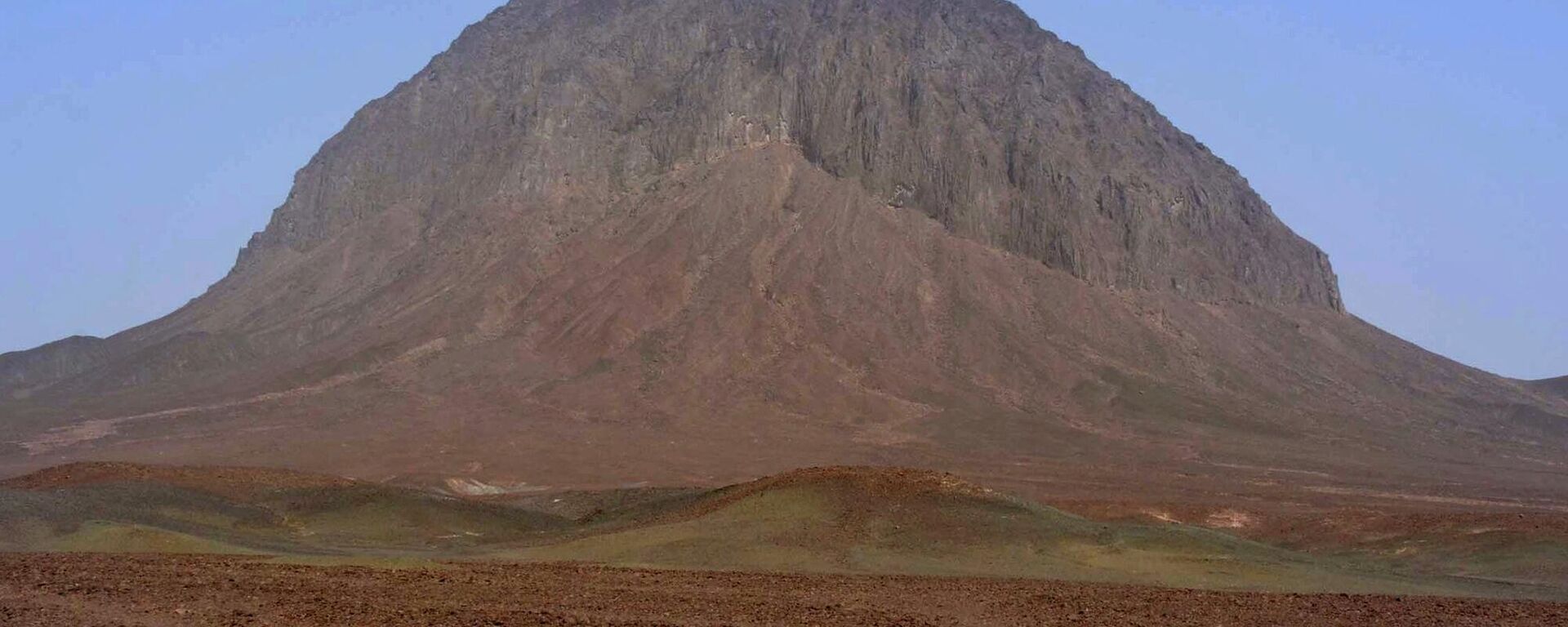https://sputniknews.in/20241111/gold-mining-cpec-and-militancy-balochistans-role-in-global-geopolitics-8384278.html
Gold Mining, CPEC, and Militancy: Balochistan's Role in Global Geopolitics
Gold Mining, CPEC, and Militancy: Balochistan's Role in Global Geopolitics
Sputnik India
Balochistan, inherited from British rule, holds a key geo-strategic position with vital oil and shipping routes. Its deep-water ports, especially Gwadar, offer... 11.11.2024, Sputnik India
2024-11-11T20:30+0530
2024-11-11T20:30+0530
2024-11-11T21:07+0530
sputnik opinion
balochistan
pakistan
china-pakistan economic corridor (cpec)
nato
https://cdn1.img.sputniknews.in/img/07e6/0c/14/166411_0:320:3072:2048_1920x0_80_0_0_c7e11005170b7ea2fb54c4a07be7ca8c.jpg
Balochistan’s proximity to critical maritime channels, such as the Strait of Hormuz, makes it an ideal location for coordinating and tracking maritime transit. The region's energy security relies on these chokepoints, providing a vital connection to Central Asia and Afghanistan, Joshua Bowes, a pundit associated with the Centre for Security, Strategy and Policy Research (CSSPR) Pakistan, and the Millennium Project's South Asia Foresight Network (SAFN) in Washington D.C., told Sputnik India.Balochistan’s deep-sea ports, particularly Gwadar, are crucial for infrastructure projects like the China-Pakistan Economic Corridor (CPEC), Bowes said. As a major transshipment hub under CPEC, Gwadar has the potential to reduce transportation times and costs, linking Pakistan to the Middle East, Africa, and Europe, he emphasised.If Balochistan’s energy resources are managed effectively, Pakistan could gain significant strategic depth and geopolitical influence, Bowes suggested.He noted that activists, such as Lateef Johar Baloch, have highlighted the complicity of corporations like Canadian mining company Barrick Gold in extracting resources to the detriment of the Baloch people.Meanwhile, militancy and terrorism in Balochistan and its borders with Iran and Afghanistan complicate regional security. Ongoing threats from armed separatists have led to political instability and strained governance, creating tensions between Pakistan and China over attacks on Chinese workers. Similarly, the heavy military presence also undermines democracy and weakens civilian governance, while economic stagnation in the CPEC, driven by rising security costs, worsens these tensions, Bowes explained.For three decades, international mining companies have faced challenges in Balochistan, particularly around the Reko Diq project, which is believed to contain one of the largest untapped reserves of copper and gold, Burzine Waghmar, an expert associated with the Centre for the Study of Pakistan at the School of Oriental and African Studies (SOAS), University of London, told Sputnik India.Barrick Gold aims to invest $7 billion to revive this project, positioning it as Pakistan’s largest foreign investment and a crucial source of copper for the global energy transition. However, Reko Diq's troubled history illustrates the difficulties foreign investors face in Pakistan, with previous attempts by companies like Australian BHP and joint ventures with Antofagasta, a mining company based in Chile, the expert said. Since the imperial and colonial era, this strategic position has made Balochistan a focal point of geopolitical interest for both regional and global powers, Manzoor Baloch, a professor, writer, and academic from Balochistan, said in a conversation with Sputnik India.When the British invaded India, they also took control of Balochistan, recognising its strategic maritime importance. In the early 20th century, the rise of the Soviet Union heightened fears of communism among colonial powers, leading to India’s partition and the creation of Pakistan. The colonial powers then believed that without Balochistan and its access to the sea, the newly formed state would be insignificant, so Balochistan was forcibly integrated in 1948, the professor explained.In the Cold War, when the Soviet Union entered Afghanistan in 1979, the United States launched a dictator General Muhammad Zia Ul Haq in Pakistan as a head of the state who used Balochistan as a critical supply route for NATO and Mujahideen forces opposing the USSR in Afghanistan, he further said.Despite its abundant natural resources and strategic importance, Balochistan faces various challenges, including enforced disappearances, extrajudicial killings, bomb blasts, and terrorism, he stressed. These issues profoundly affect the lives of the Baloch people, who seek security in a resource-rich land, the expert highlighted. Balochistan has, since 1948, experienced ongoing militancy against Pakistan, marking the 5th wave of unrest and highlighting the complex interplay of resources, power, and identity in this historically rich region, Baloch summed up.
https://sputniknews.in/20240123/western-gold-mining-giants-plunder-pakistans-balochistan-as-locals-live-in-poverty-6308044.html
balochistan
pakistan
china-pakistan economic corridor (cpec)
Sputnik India
feedback.hindi@sputniknews.com
+74956456601
MIA „Rossiya Segodnya“
2024
Muhammad Sharif
https://cdn1.img.sputniknews.in/img/07e7/0b/05/5257054_0:0:443:444_100x100_80_0_0_b8bd2af32be62a6eecdb4a84c7fd978f.jpg
Muhammad Sharif
https://cdn1.img.sputniknews.in/img/07e7/0b/05/5257054_0:0:443:444_100x100_80_0_0_b8bd2af32be62a6eecdb4a84c7fd978f.jpg
News
en_IN
Sputnik India
feedback.hindi@sputniknews.com
+74956456601
MIA „Rossiya Segodnya“
Sputnik India
feedback.hindi@sputniknews.com
+74956456601
MIA „Rossiya Segodnya“
Muhammad Sharif
https://cdn1.img.sputniknews.in/img/07e7/0b/05/5257054_0:0:443:444_100x100_80_0_0_b8bd2af32be62a6eecdb4a84c7fd978f.jpg
balochistan, pakistan, china-pakistan economic corridor (cpec), nato
balochistan, pakistan, china-pakistan economic corridor (cpec), nato
Gold Mining, CPEC, and Militancy: Balochistan's Role in Global Geopolitics
20:30 11.11.2024 (Updated: 21:07 11.11.2024) Balochistan, inherited from British rule, holds a key geo-strategic position with vital oil and shipping routes. Its deep-water ports, especially Gwadar, offer significant advantages, though underutilised, experts said.
Balochistan’s proximity to critical maritime channels, such as the Strait of Hormuz, makes it an ideal location for coordinating and tracking maritime transit.
The region's energy security relies on these chokepoints, providing a vital connection to Central Asia and Afghanistan, Joshua Bowes, a pundit associated with the Centre for Security, Strategy and Policy Research (CSSPR) Pakistan, and the Millennium Project's South Asia Foresight Network (SAFN) in Washington D.C., told Sputnik India.
Balochistan’s deep-sea ports, particularly Gwadar, are crucial for infrastructure projects like the China-Pakistan Economic Corridor (CPEC), Bowes said. As a major transshipment hub under CPEC, Gwadar has the potential to reduce transportation times and costs, linking Pakistan to the Middle East, Africa, and Europe, he emphasised.
If Balochistan’s energy resources are managed effectively, Pakistan could gain significant strategic depth and geopolitical influence, Bowes suggested.
He noted that activists, such as Lateef Johar Baloch, have highlighted the complicity of corporations like Canadian mining company
Barrick Gold in extracting resources to the detriment of the Baloch people.
"The Reko Diq mining project, aimed at extracting gold and copper, could boost Pakistan’s economy, but it does little for the struggling Baloch population. Currently, only a few benefits from Balochistan’s wealth [are seen], and none of them are Baloch," the pundit expressed.
Meanwhile,
militancy and terrorism in Balochistan and its borders with Iran and Afghanistan complicate regional security. Ongoing threats from armed separatists have led to political instability and strained governance, creating tensions between Pakistan and China over
attacks on Chinese workers. Similarly, the heavy military presence also undermines democracy and weakens civilian governance, while economic stagnation in the CPEC, driven by rising security costs, worsens these tensions, Bowes explained.
For three decades, international mining companies have faced challenges in Balochistan, particularly around the Reko Diq project, which is believed to contain one of the largest untapped reserves of copper and gold, Burzine Waghmar, an expert associated with the Centre for the Study of Pakistan at the School of Oriental and African Studies (SOAS), University of London, told Sputnik India.
Barrick Gold aims to invest $7 billion to revive this project, positioning it as Pakistan’s largest foreign investment and a crucial source of copper for the global energy transition. However, Reko Diq's troubled history illustrates the difficulties foreign investors face in Pakistan, with previous attempts by companies like Australian BHP and joint ventures with Antofagasta, a mining company based in Chile, the expert said.
"As the world shifts to clean energy, copper's demand is expected to rise, with a projected $118 billion needed by 2030 to address supply shortages. Saudi Arabia’s Public Investment Fund and Ma’aden are interested in investing, potentially stabilising the project, though security remains a concern. Located near Afghanistan and Iran, Reko Diq is vulnerable to insurgent attacks from militants groups," Waghmar expressed.
Since the imperial and colonial era, this strategic position has made Balochistan a focal point of geopolitical interest for both regional and global powers, Manzoor Baloch, a professor, writer, and academic from Balochistan, said in a conversation with Sputnik India.
When the British invaded India, they also took control of Balochistan, recognising its strategic maritime importance. In the early 20th century, the rise of the Soviet Union heightened fears of communism among colonial powers, leading to India’s partition and the creation of Pakistan. The colonial powers then believed that without Balochistan and its access to the sea, the newly formed state would be insignificant, so Balochistan was forcibly integrated in 1948, the professor explained.
In the Cold War, when the Soviet Union entered Afghanistan in 1979, the United States launched a dictator General Muhammad Zia Ul Haq in Pakistan as a head of the state who used Balochistan as a critical supply route for NATO and Mujahideen forces opposing the USSR in Afghanistan, he further said.
"Pakistan, as a developing nation with an unstable, loan-driven economy, has partnered with regional and Western companies, notably the Barrick Company, to extract natural resources from Balochistan, particularly from the Reko Diq and Saindak gold and copper mines. These ventures, unfortunately, have often left the local Baloch population in poverty, militancy, exacerbating existing conflicts," Baloch stated.
Despite its abundant natural resources and strategic importance, Balochistan faces various challenges, including enforced disappearances, extrajudicial killings, bomb blasts, and terrorism, he stressed. These issues profoundly affect the lives of the Baloch people, who seek security in a resource-rich land, the expert highlighted.
Balochistan has,
since 1948, experienced ongoing
militancy against Pakistan, marking the 5th wave of unrest and highlighting the complex interplay of resources, power, and identity in this historically rich region, Baloch summed up.



